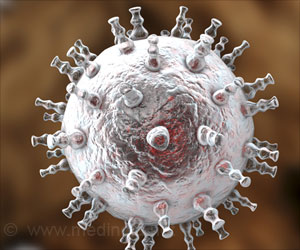Infection of food due to Listeria can be life-threatening unless vigilance is practiced to curb the infection according to the report published
Infection of food due to Listeria can be life-threatening unless vigilance is practiced to curb the infection according to the report published by Food Safety Authority of Ireland.(FSAI). The mortality due to infection can be as much as 30% associated with Listeria food contamination and only miniscule amounts need to be consumed to cause serious infection.
Professor Flynn said.: “The infectious dose associated with L. monocytogenes is uncertain, however it is estimated that exposure to less than 1,000 cells may cause serious infection. This is very low when compared to Salmonella, another food borne bacterial infection, where an individual must ingest over 100,000 cells of the bacteria to cause infection,”The infection can effect food chains unless due precautions are taken. Pregnant women, young children, elderly people and people with impaired immune functions are more prone to such infections. A recent outbreak of L.monocytogenes infection in Switzerland due to cheese consumption resulted in the death of two elderly people, two miscarriages and a further six people were hospitalized.
Listeriosis in pregnancy may result in miscarriage, stillbirth or premature birth of an infant with life threatening infection. Listeriosis in elderly people or those with impaired immune function include high fever, shivering, severe headache, neck stiffness and nausea. The usual incubation period for the L. monocytogenes infection is three to four weeks but can also range from one to ten weeks.
The Microbiology Sub-committee, chaired by Prof Martin Cormican of FSAI has given 58 recommendations for risk prevention and concludes that tighter controls need to be adopted by both the food industry and consumers to limit the spread of this harmful food-borne bacterium.
Foods that are usually associated with L. monocytogenes contamination are ready to eat food products such as -- red-meat, poultry-meat and fish, including frankfurters, pâté, smoked salmon and fermented raw meat sausages. Affected dairy products include soft cheeses, such as Brie, Camembert and roulade, semi-soft farmhouse cheeses and unpasteurised milk. Prepared salads, such as coleslaw can support the growth of the pathogen.
Dr. John O’Brien, chief executive of the Food Safety Authority of Ireland, said that, “there is no question that the most effective point of control in managing the spread of L. monocytogenes in food products is at the stage of manufacturing or during food preparation and storage in the home. The implementation of a food safety management system and the provision of food safety training for all employees are legal requirements of all food businesses. Ensuring that every food business operates from a clean and sanitized premises should be the first basic step in combating the spread of L. monocytogenes in food products. Regular laboratory testing of food samples and the factory environment should also form a key element of the strategy adopted by the food industry. Meanwhile consumers are encouraged to play their part by adhering closely to all manufacturer instructions on ready-to-eat food products.”
Advertisement











